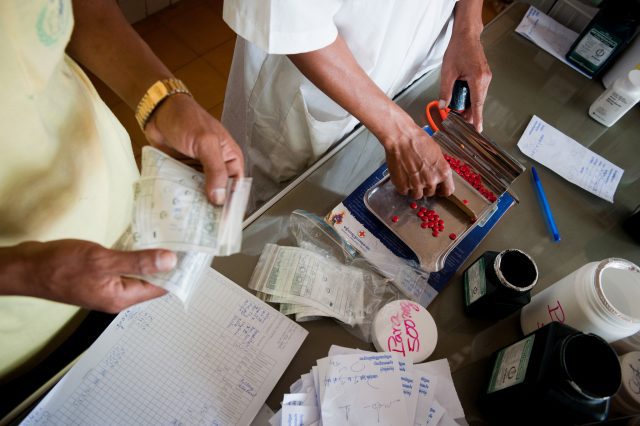
Adolescents should regularly be tested for HIV, even if it is unlikely that the virus is in their body. Submitting to an evaluation is beneficial for two important reasons.
First, many who have contracted the disease often feel well with no symptoms for several years, leaving them unaware that they are infected. This scenario delays essential treatment, and increases the chances of them unknowingly infecting others.
Second, the objective is to demonstrate to friends and family that there is no embarrassment involved. Therefore, by encouraging open conversation, people can reduce misguided beliefs and common stigmas.
Misconceptions are common because many individuals have heard of HIV or AIDS (acquired immunodeficiency syndrome) but don’t know the difference or specific details.
HIV is a virus that destroys cells in a body’s immune system which can lead to infections. AIDS is a condition/syndrome. Being infected with HIV can lead to AIDS which develops when HIV has caused severe damage to the immune system.
According to AIDS.gov, HIV can be transmitted by direct contact with bodily fluids such as blood, breast milk, vaginal fluids, rectal secretions or semen of an infected person. For transmission to occur, fluids must come into contact with damaged tissue, mucous membranes or be directly injected into the bloodstream. HIV is not transmitted through saliva, sweat or tears.
Most young people contract HIV through unprotected sexual contact. Across the globe, many young people have been diagnosed with the virus, and are taking medication or undergoing treatments several times a week. They view themselves as different because they have a disease that, as far as they know, no one else has the courage to discuss openly.
Children who are infected at birth must learn to care for themselves when they reach their teens. It is in the best interest of health associations, school programs, and family members to motivate and educate youth about their necessary care. They must also understand how to make certain these needs are met as neglect can easily turn into a matter of life or death.
Teaching adolescents how to schedule their appointments and treatments makes them more responsible and able to independently manage their illness. They enjoy the independence and are more likely to pay closer attention to their diagnosis and essential treatment.
Becoming educated about HIV and AIDS should be everyone’s priority. By taking the time do so, one can learn how to prevent or deal with this virus. Understanding the facts can go a long way and prove useful for everyone — infected or not.
Someone who is uneducated is unable to understand what HIV does to their body. As a result, they would naturally have common misconceptions, concerns, and questions about engaging in sexual relationships or giving birth without passing on the virus.
Testing for HIV at least every three months, especially if the person is sexually active, can improve the chances of catching early signs of a virus development.
Analyte Health provides testing for sexually transmitted diseases (STD) in labs located throughout the United States and in Chicago, they are open seven days a week with extended hours. If lack of money or insurance is a factor, the Chicago Department of Public Health provides free testing and treatment.
Written by Brielle R. Buford
Edited by Cathy Milne
Sources:
U.S. Department of Health and Human Services AIDS info: Guidelines for the Use of Antiretroviral Agents in HIV-1-Infected Adults and Adolescents
Huffington Post: Defeating HIV/AIDS Means Listening To Young People
NPR Affiliate 90.5 WESA: Finding A Bigger Voice: How Radio Brought A Young HIV Advocate From Botswana To Pittsburg
MEDWISER: Solving the HIV testing challenge
AVERT: Being Young And HIV Positive
Featured and Top Image Courtesy of Asian Development Bank’s Flickr Page – Creative Commons License



